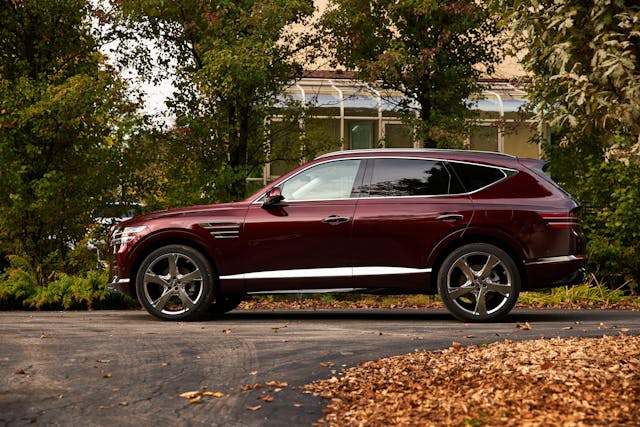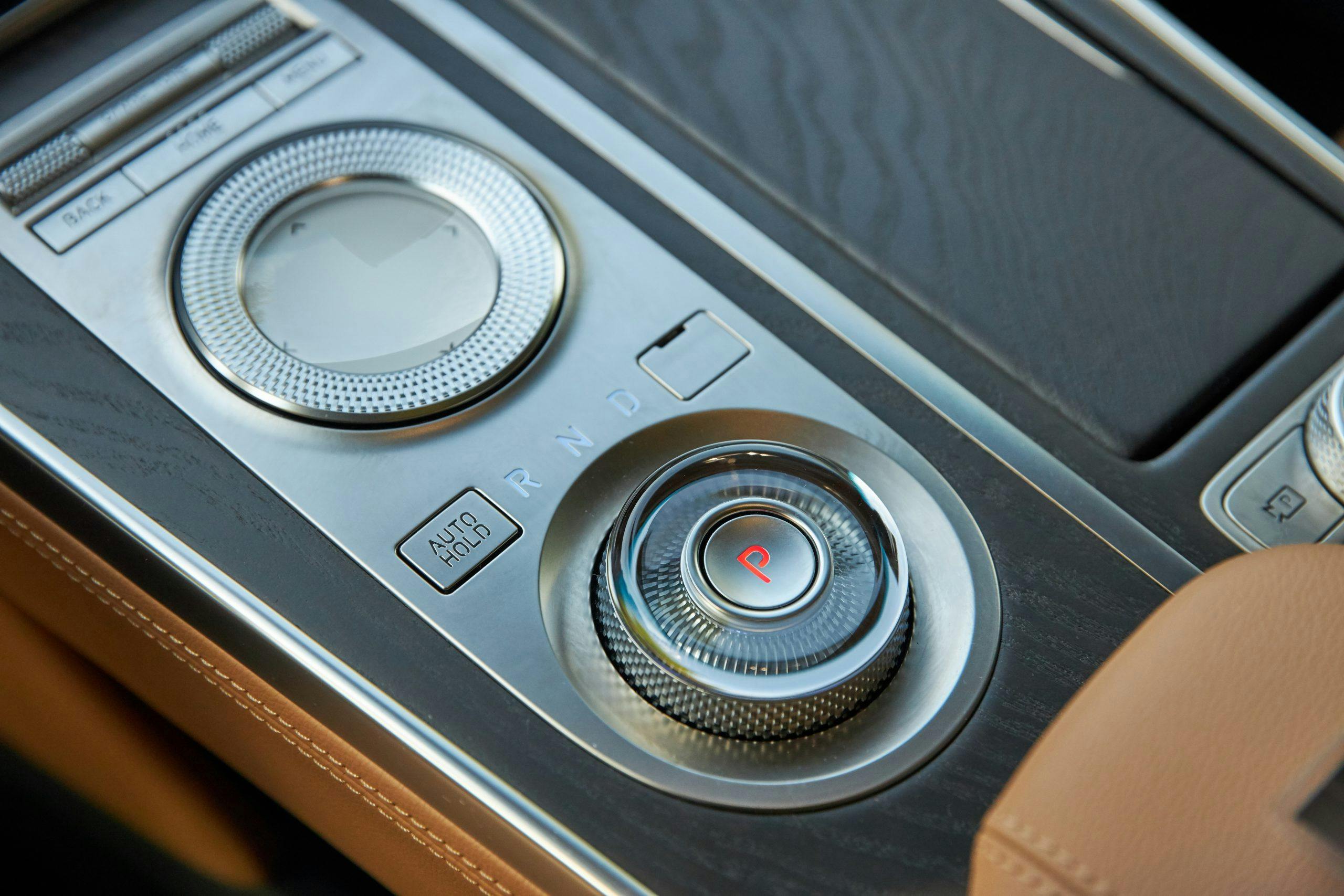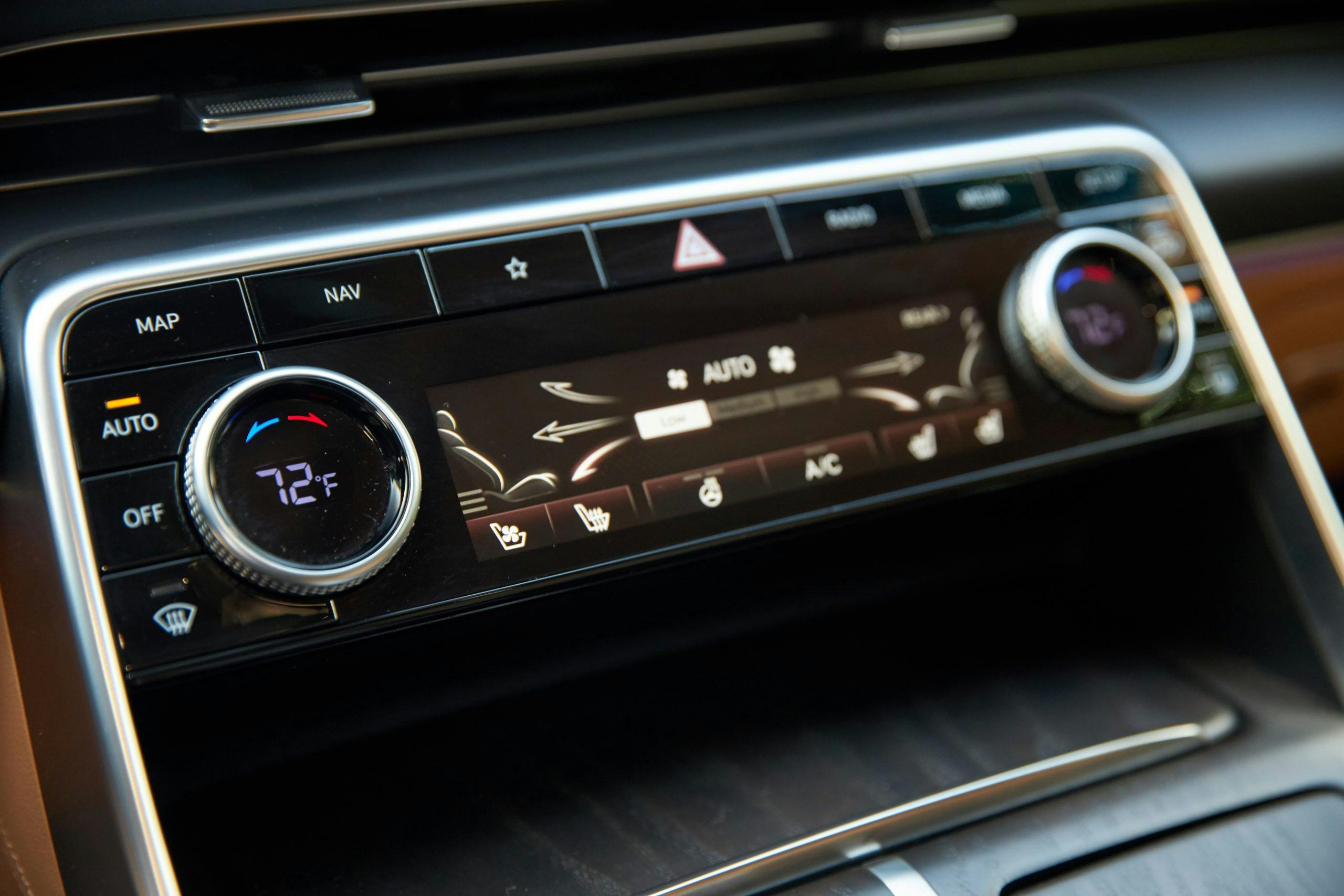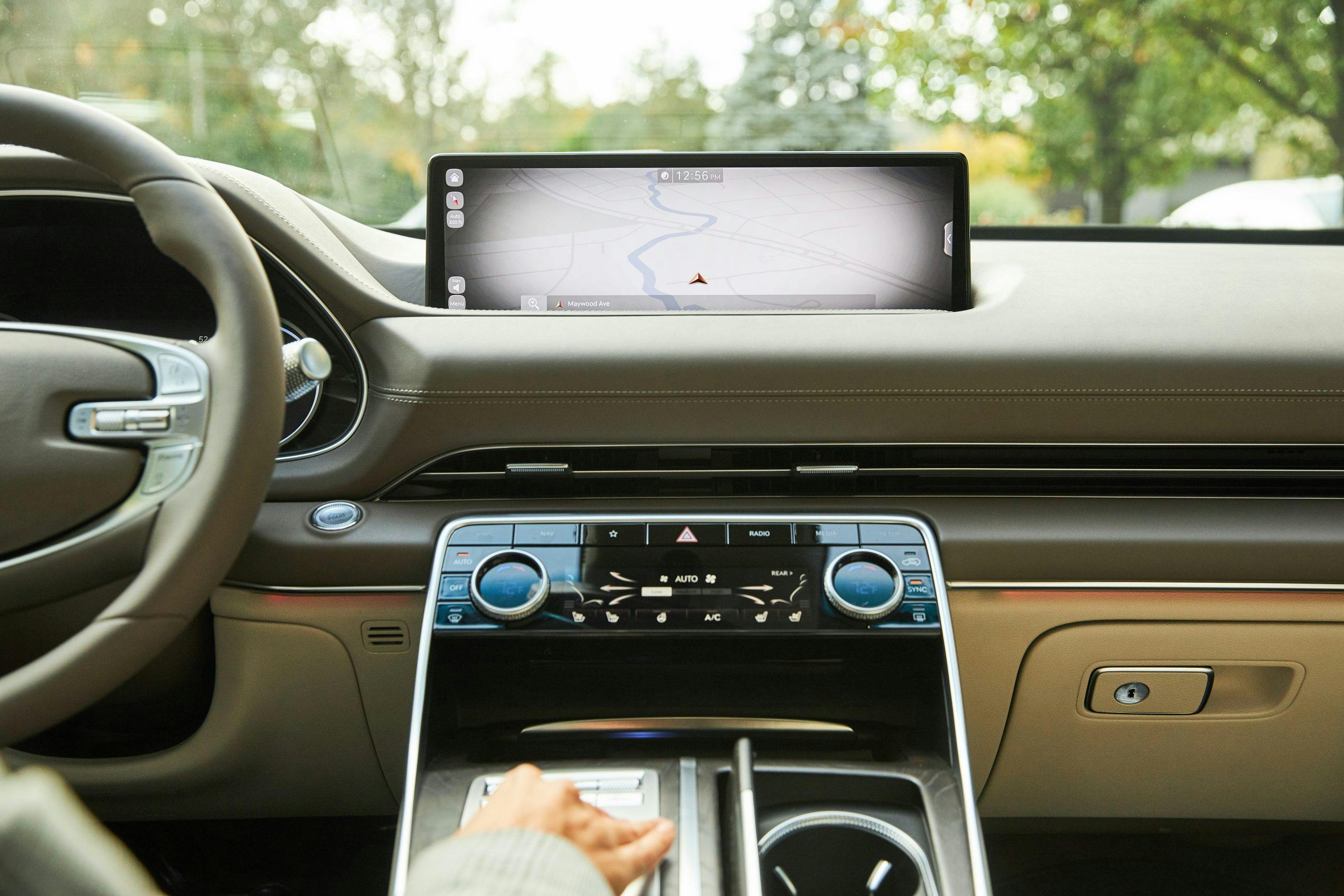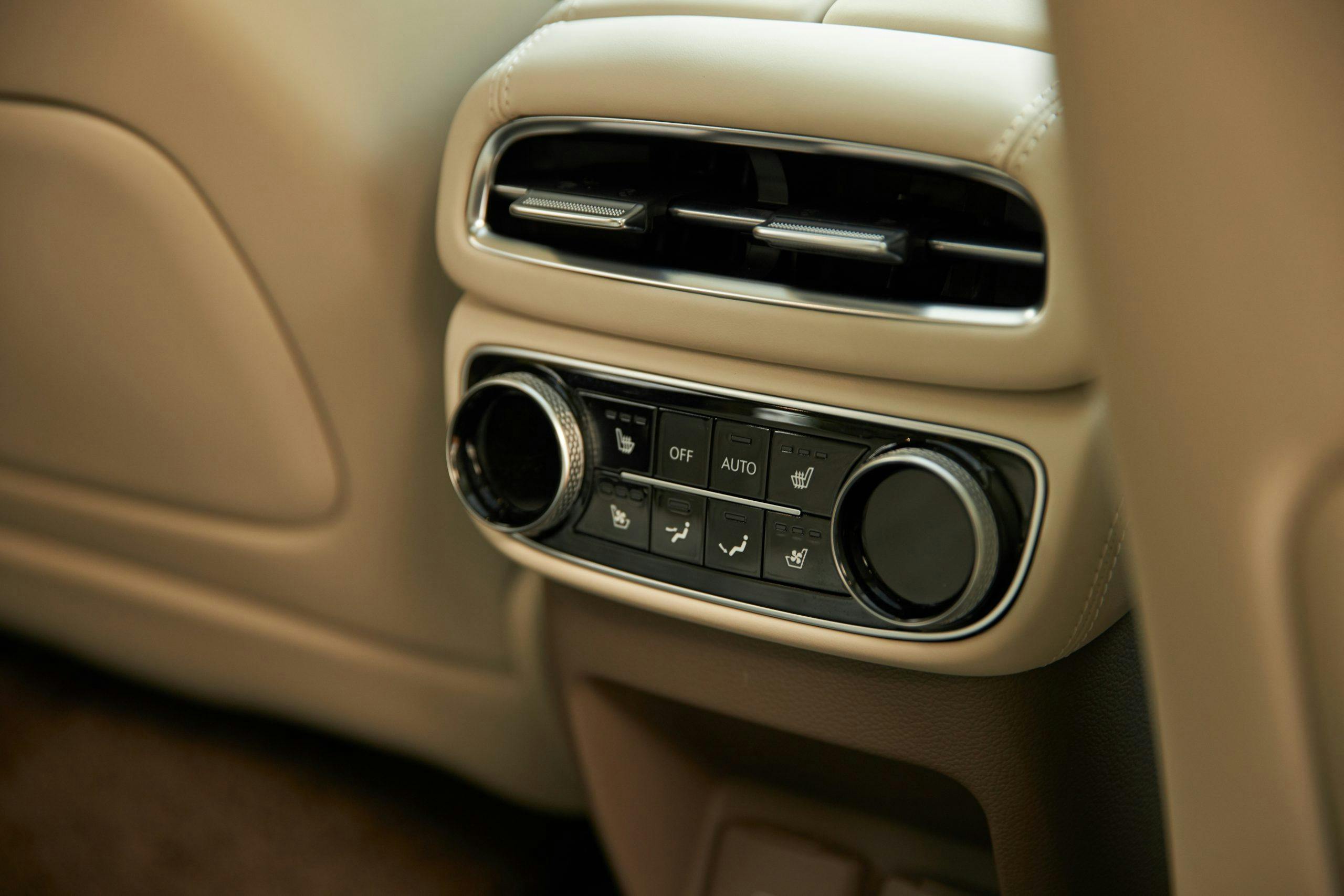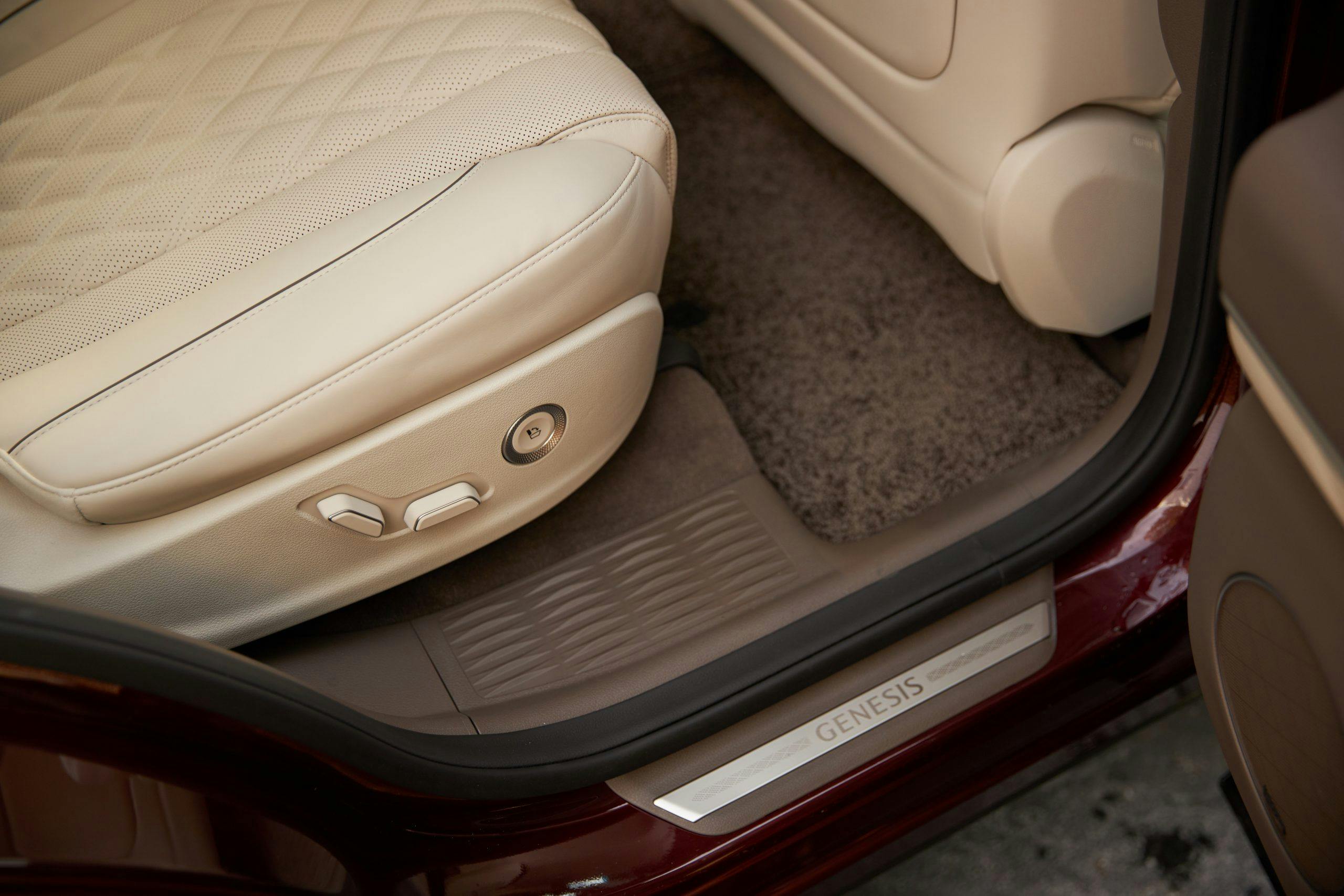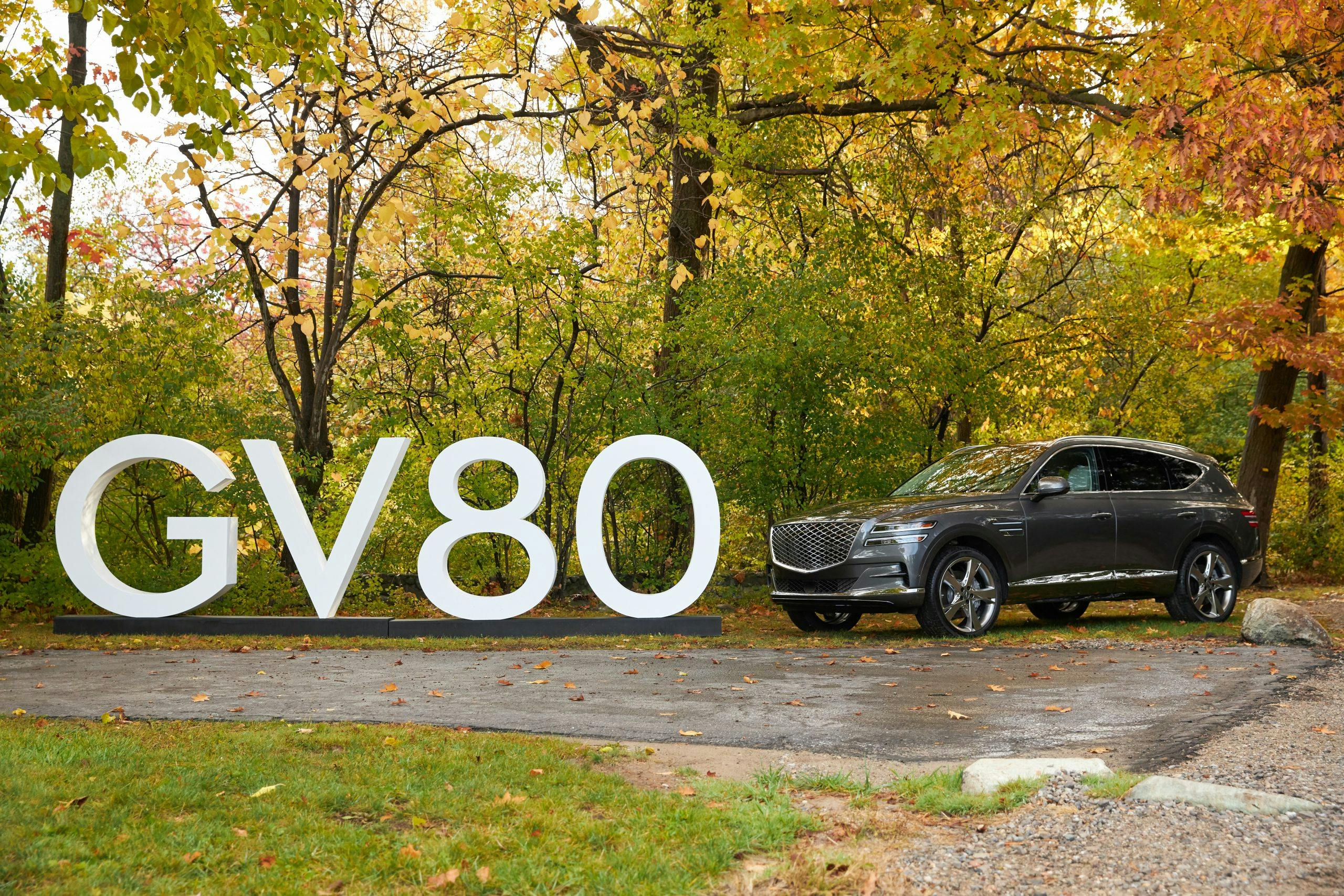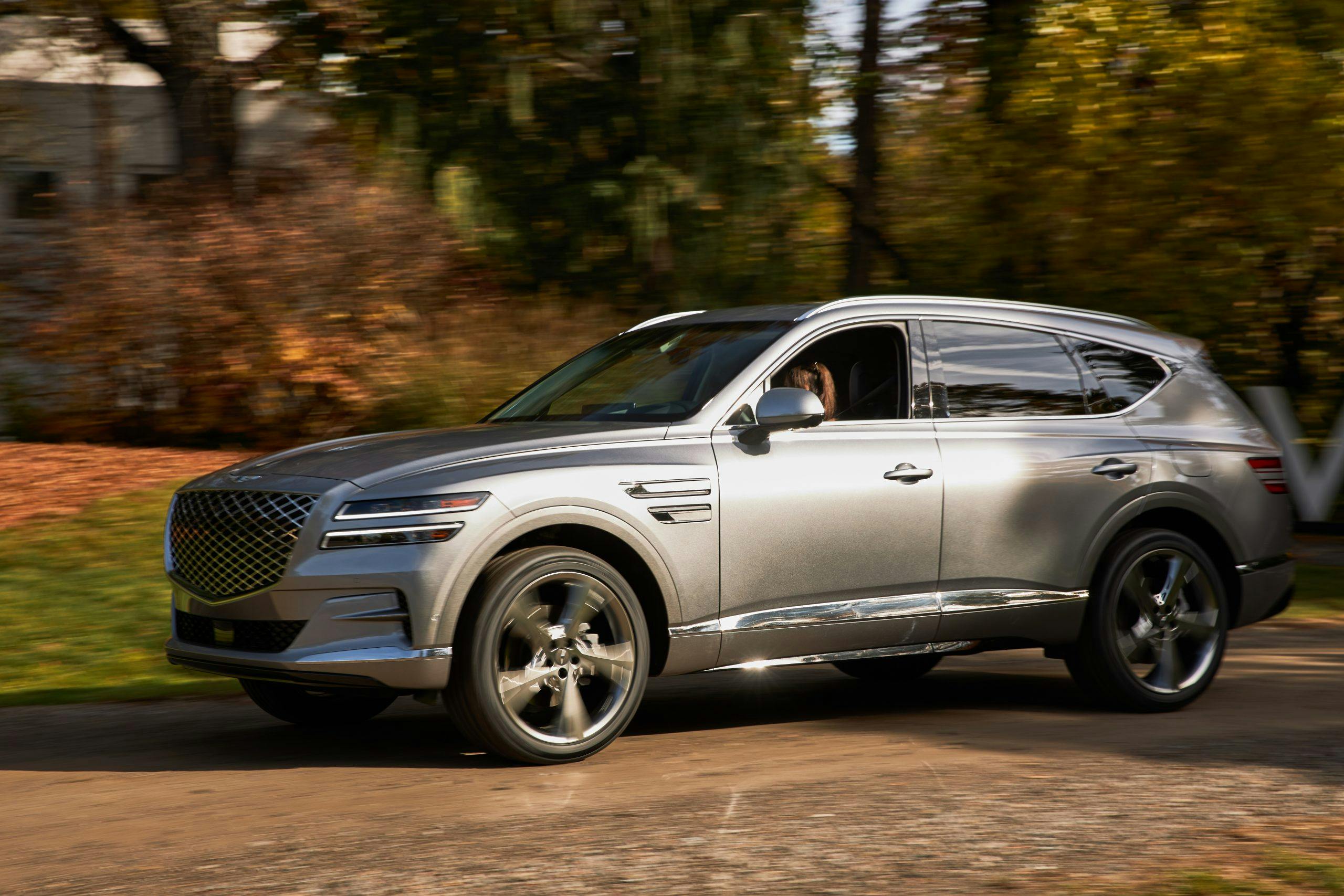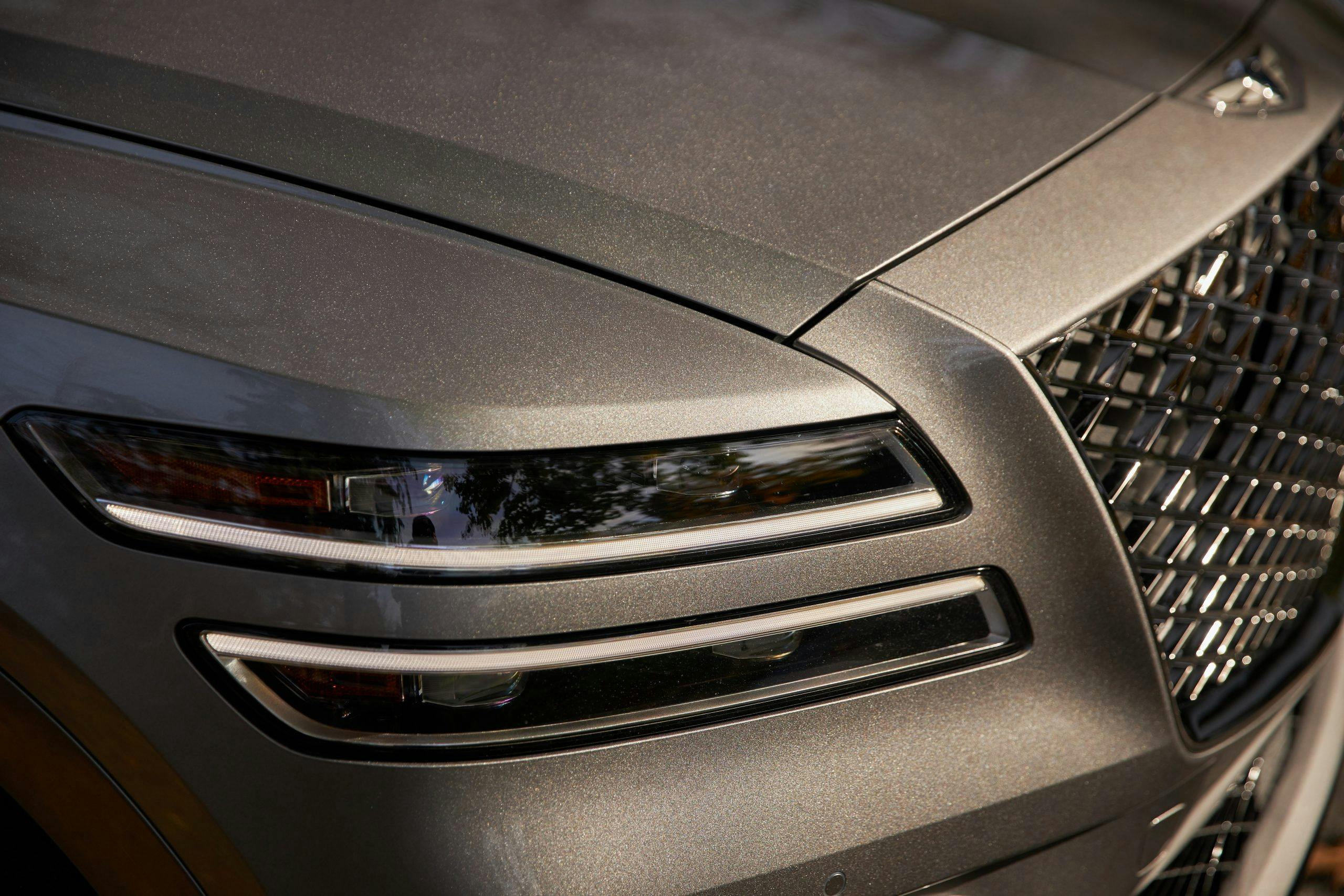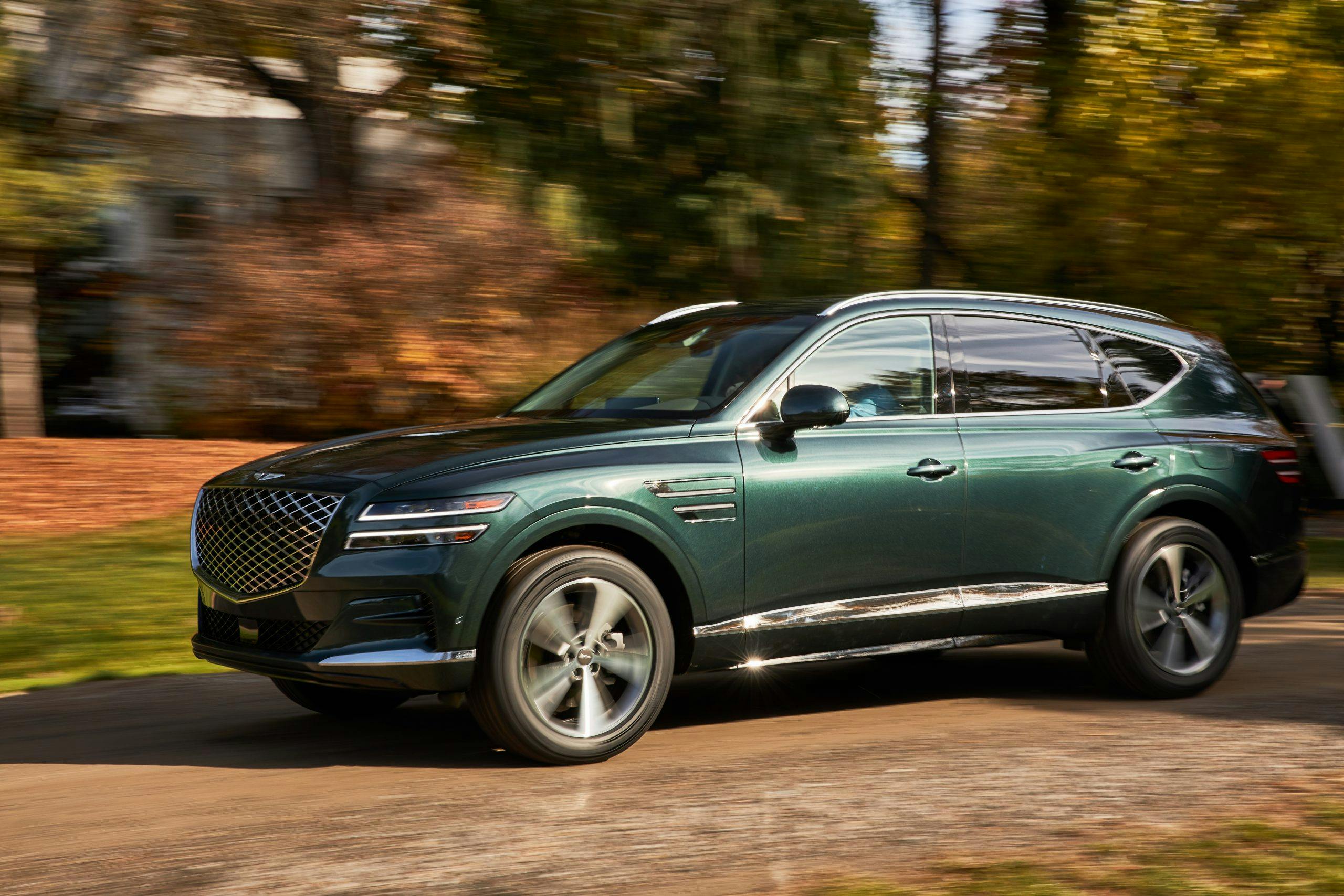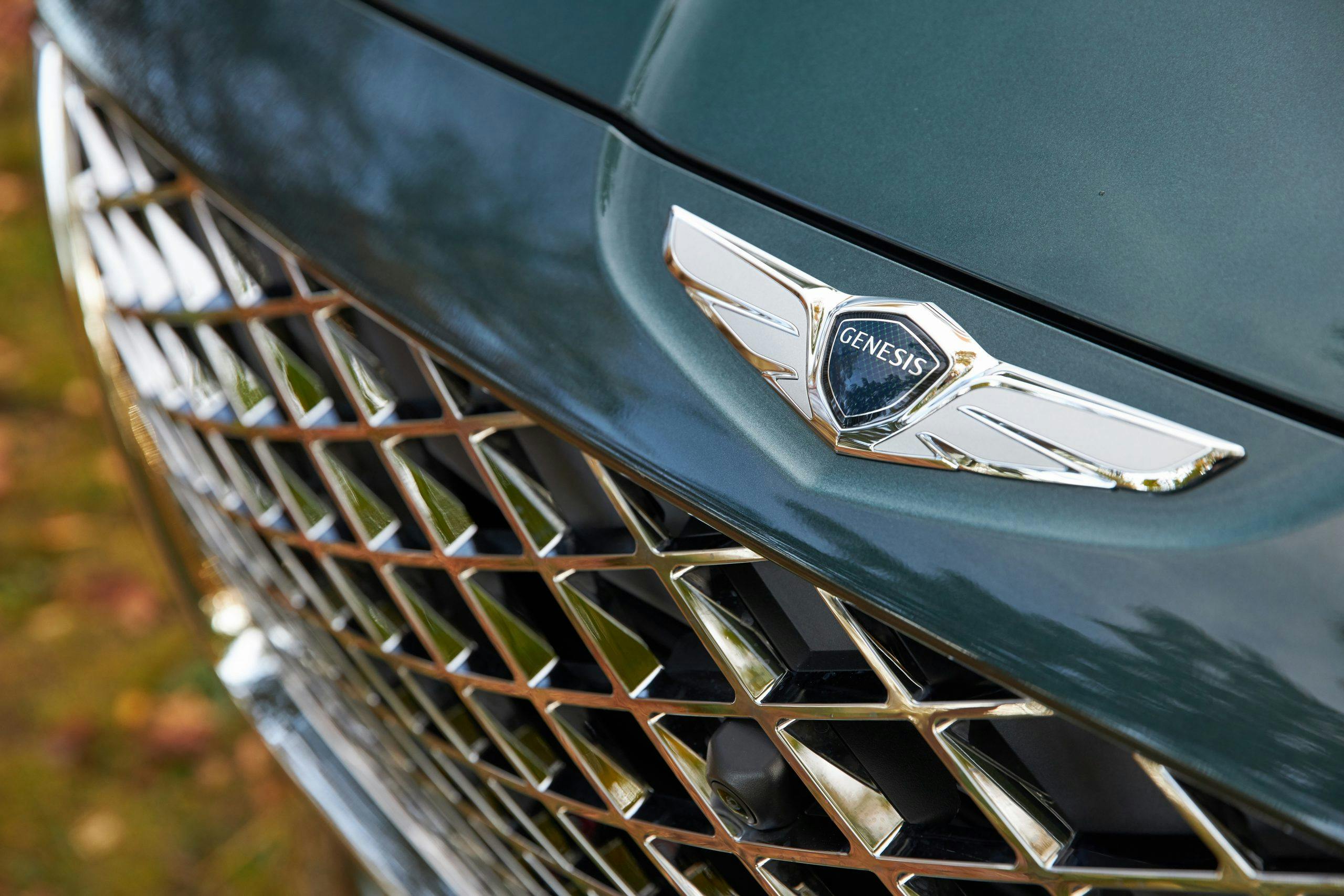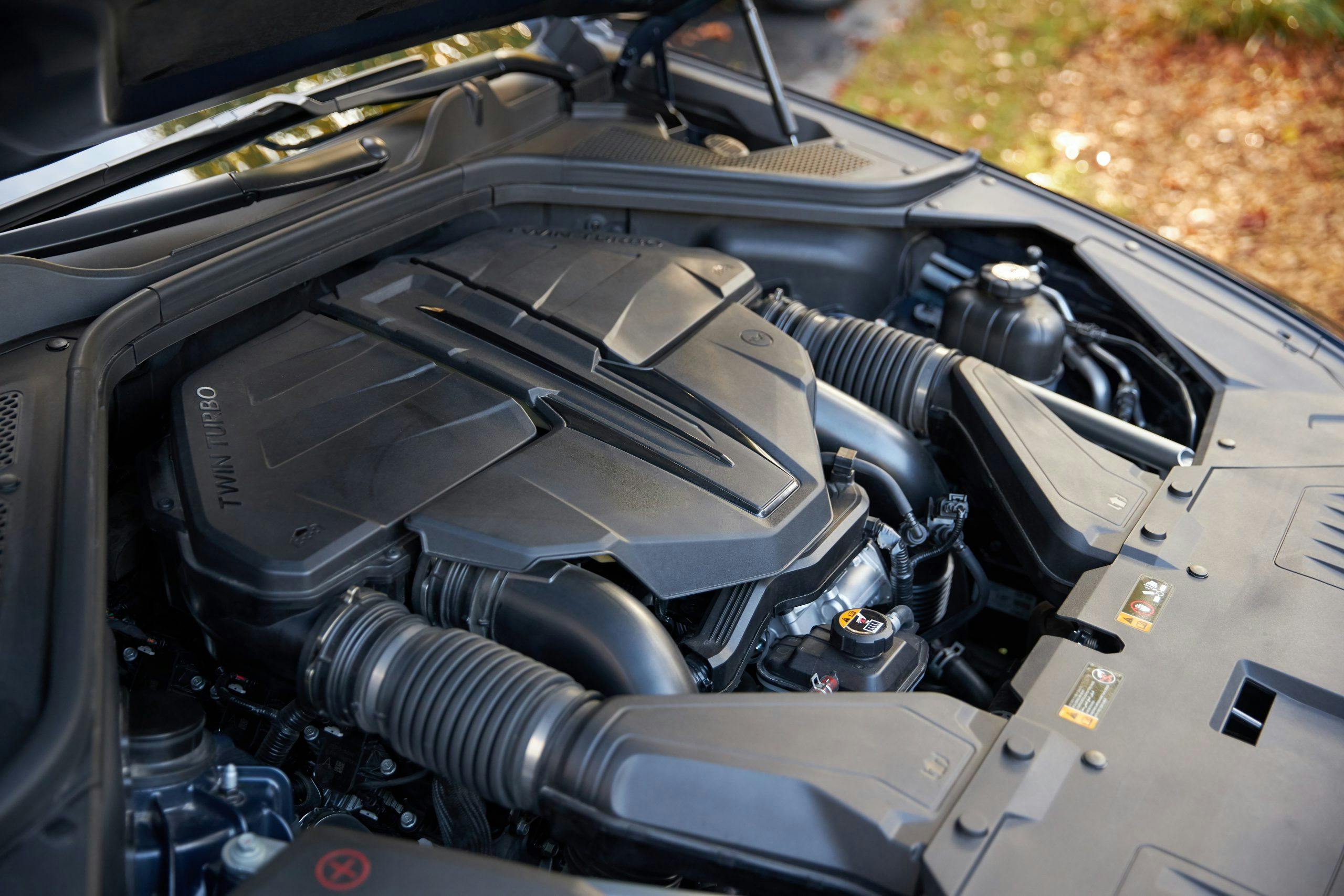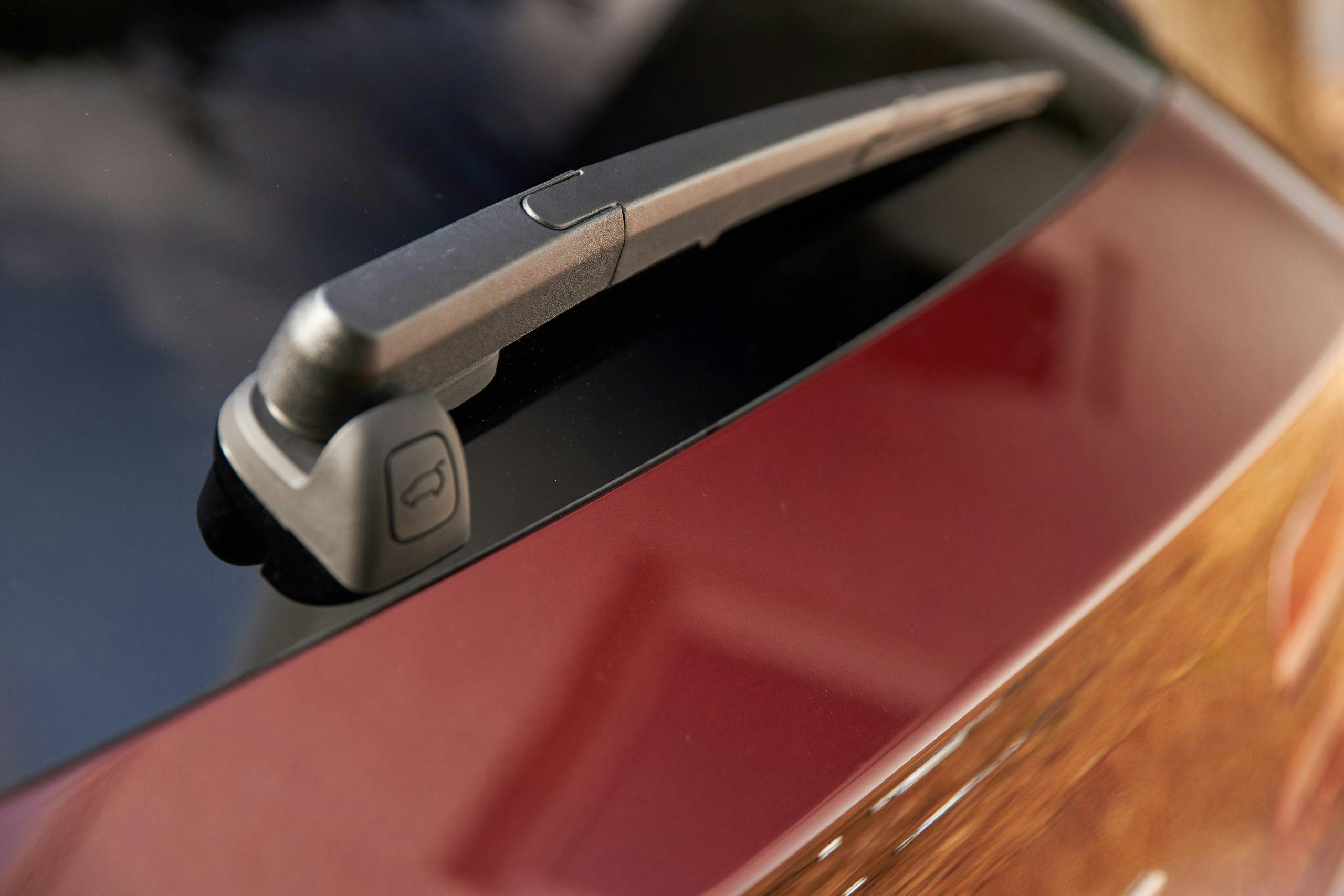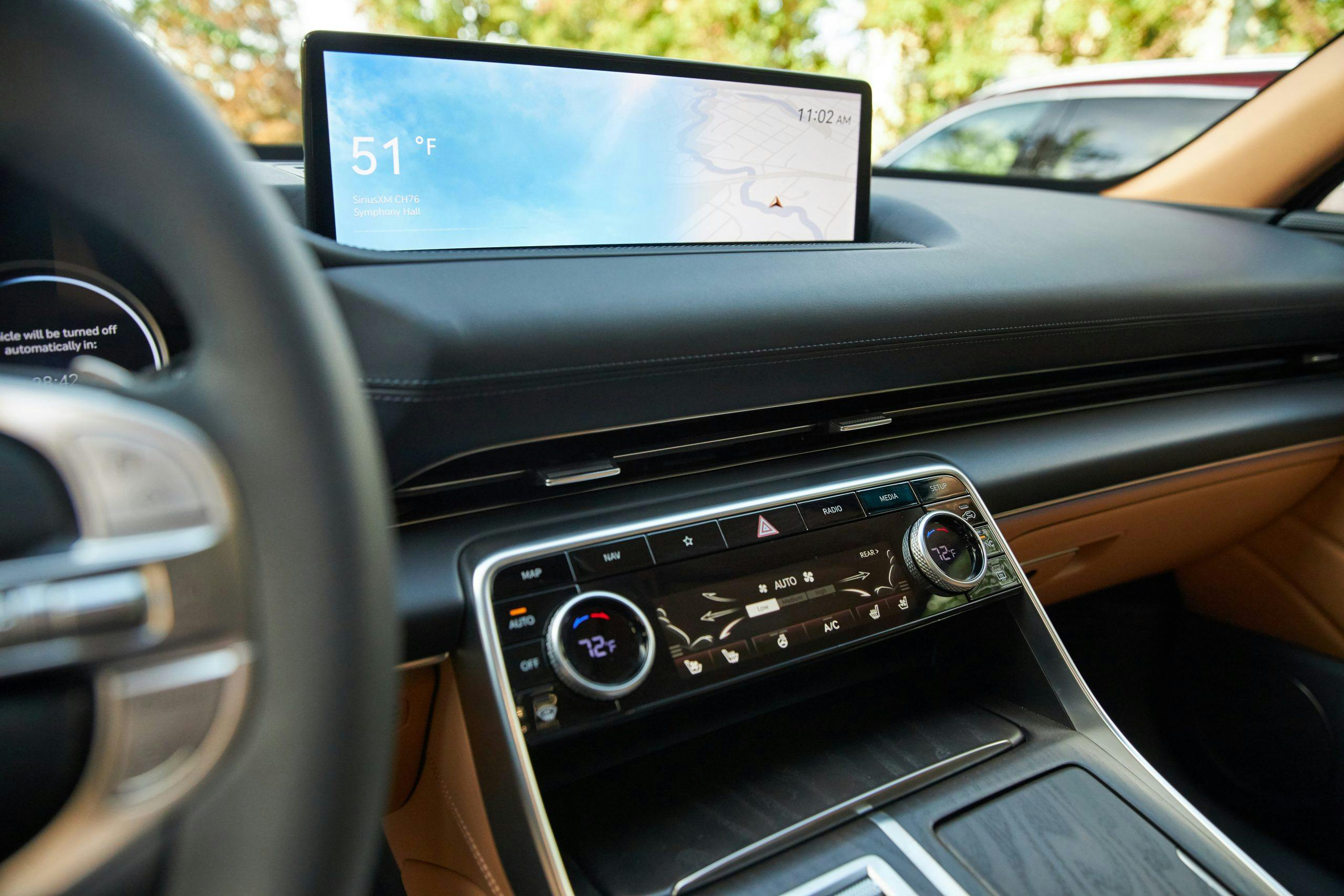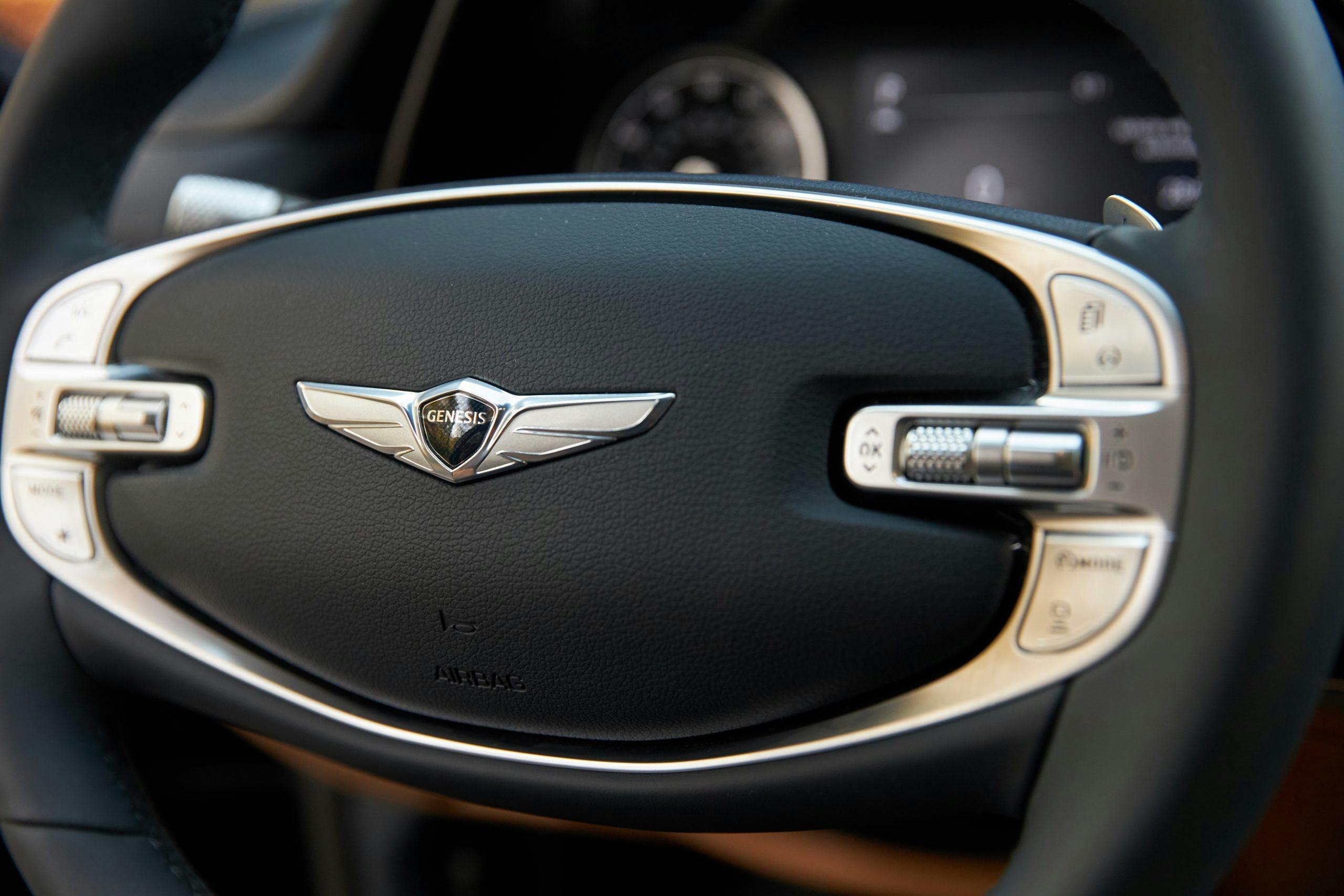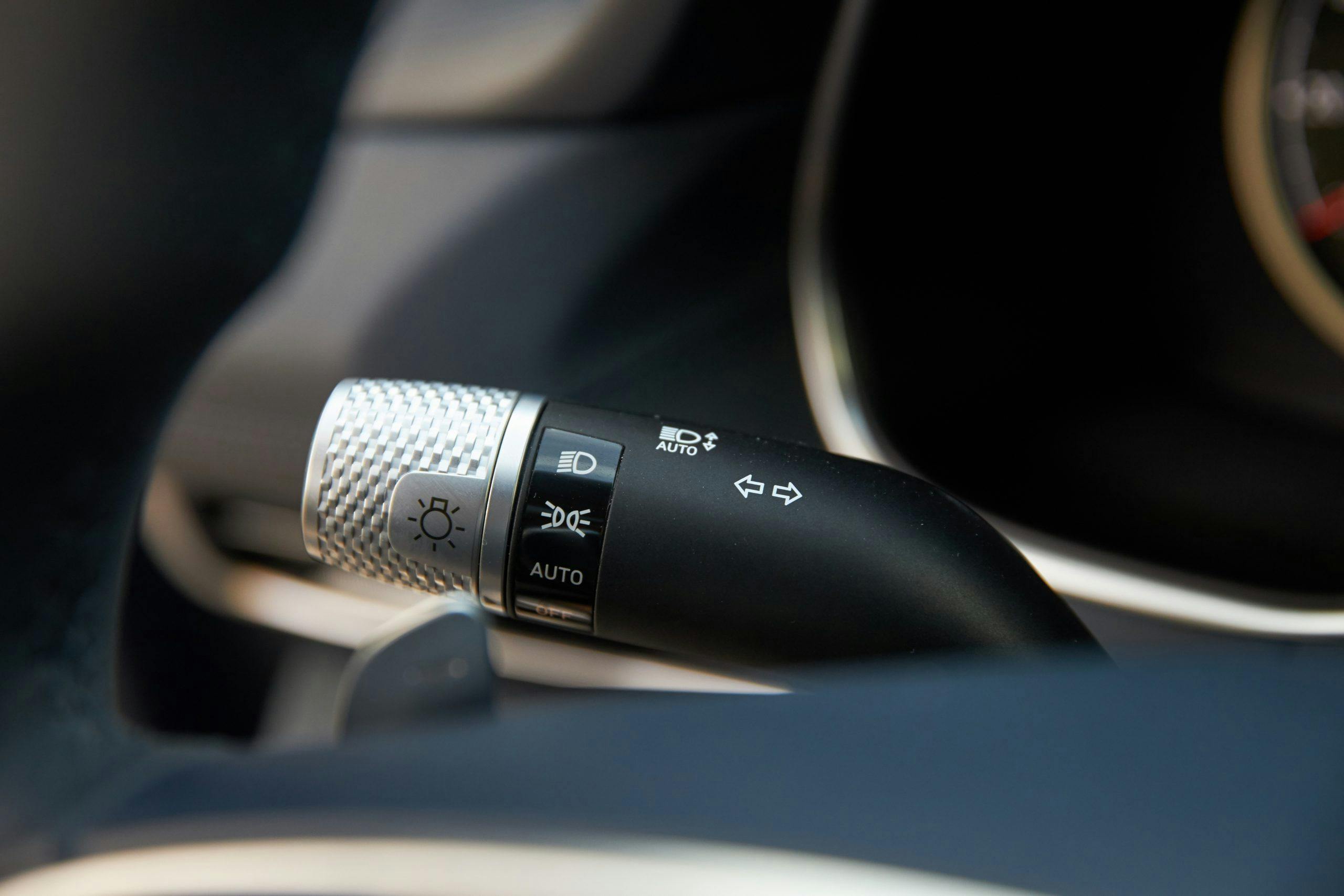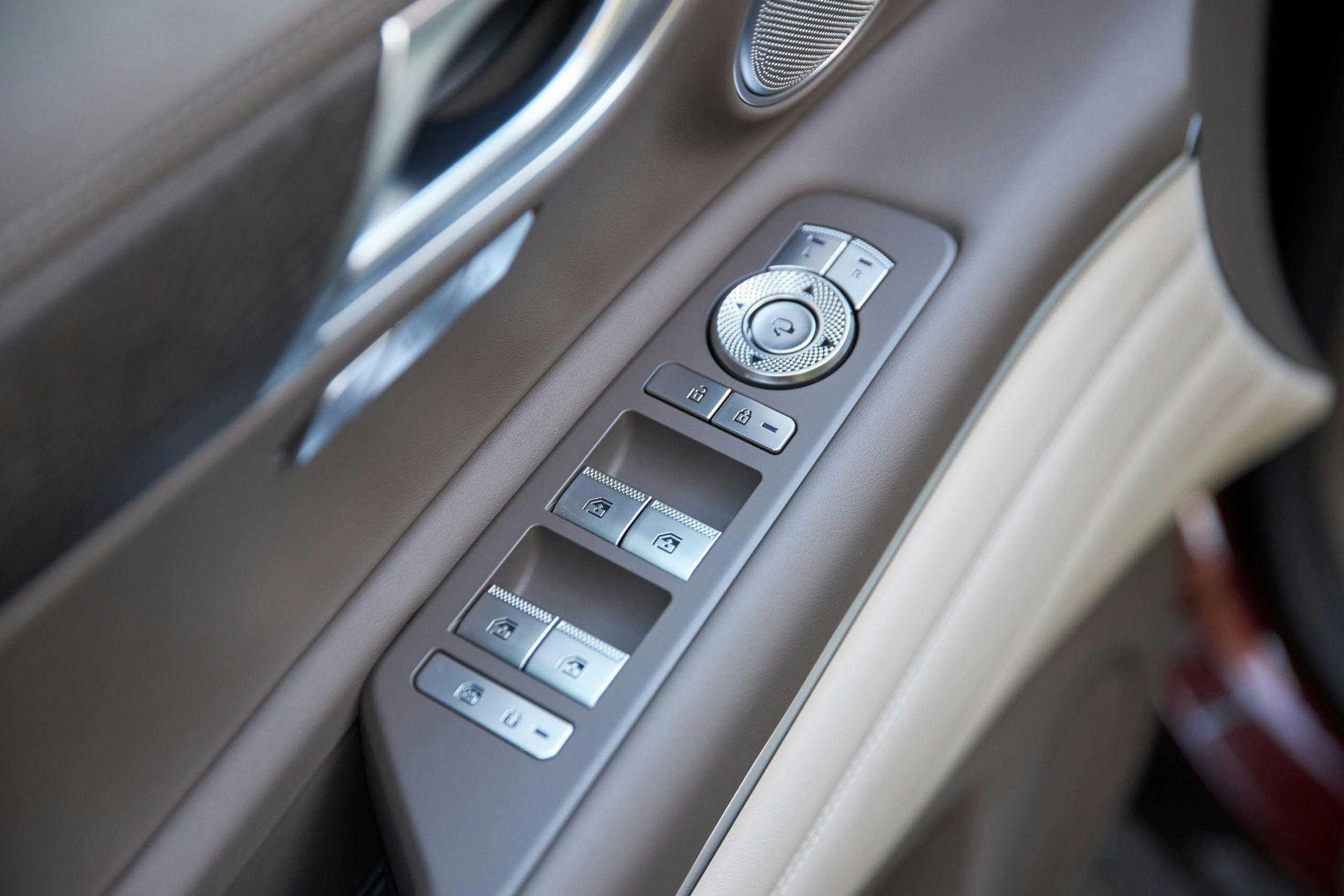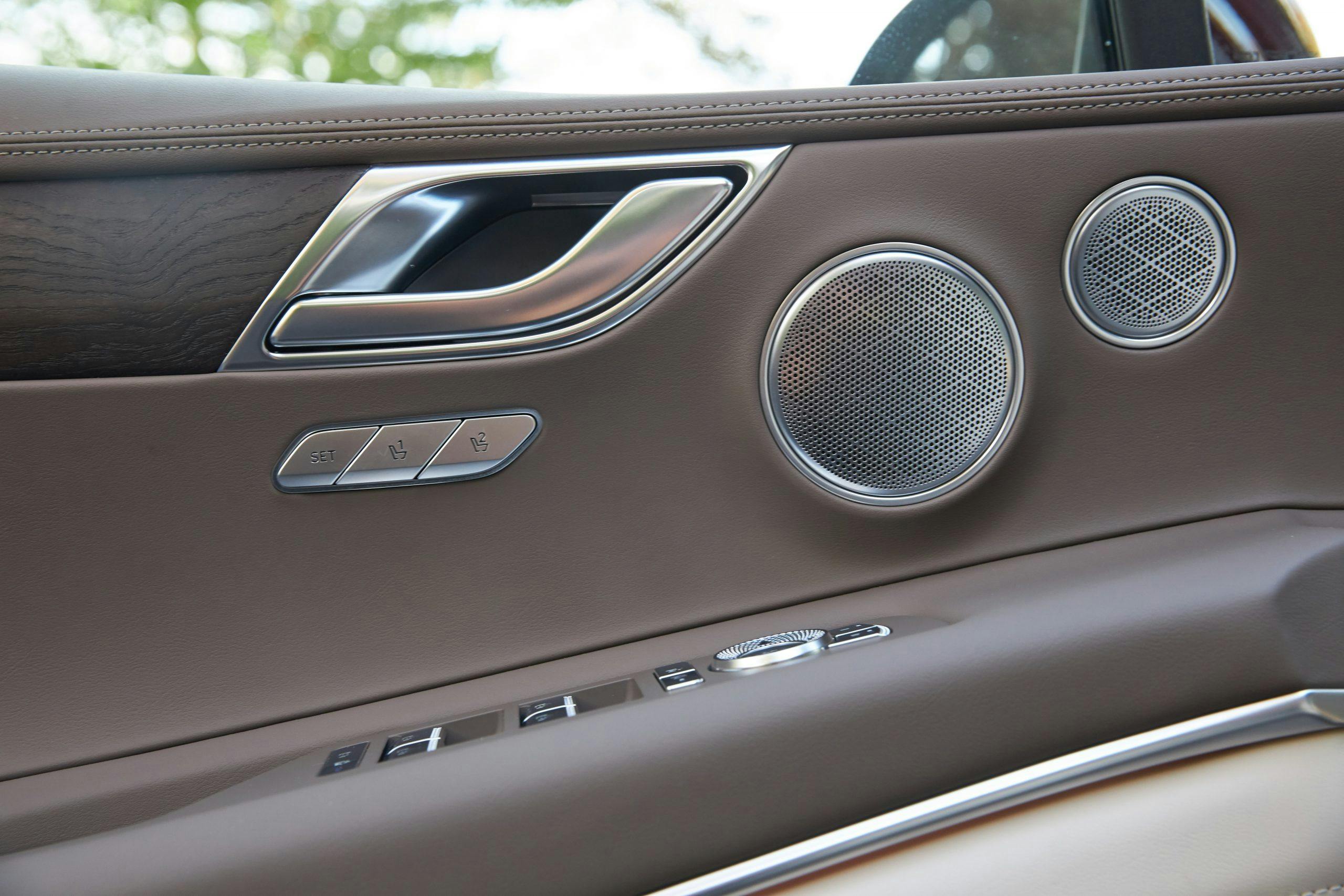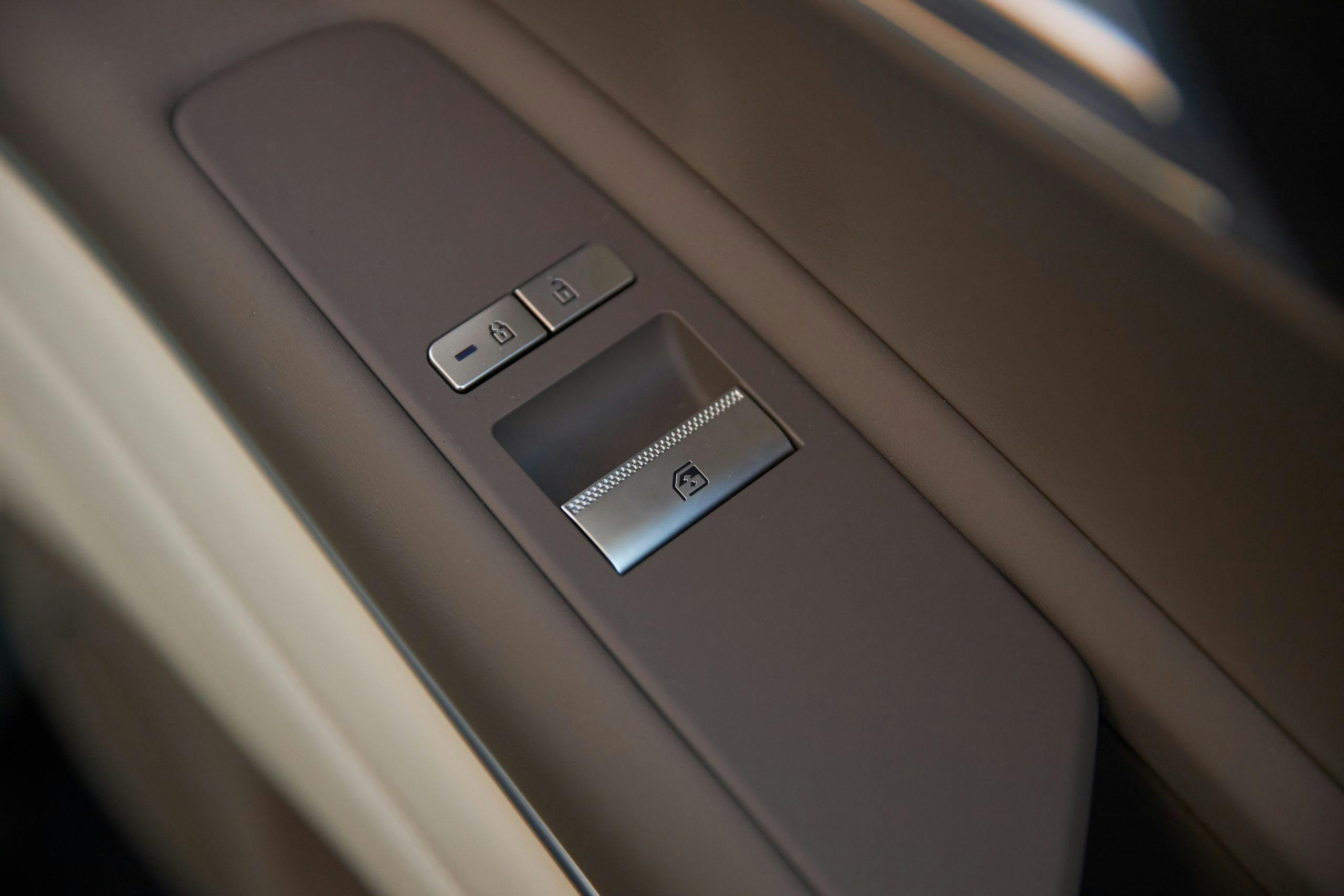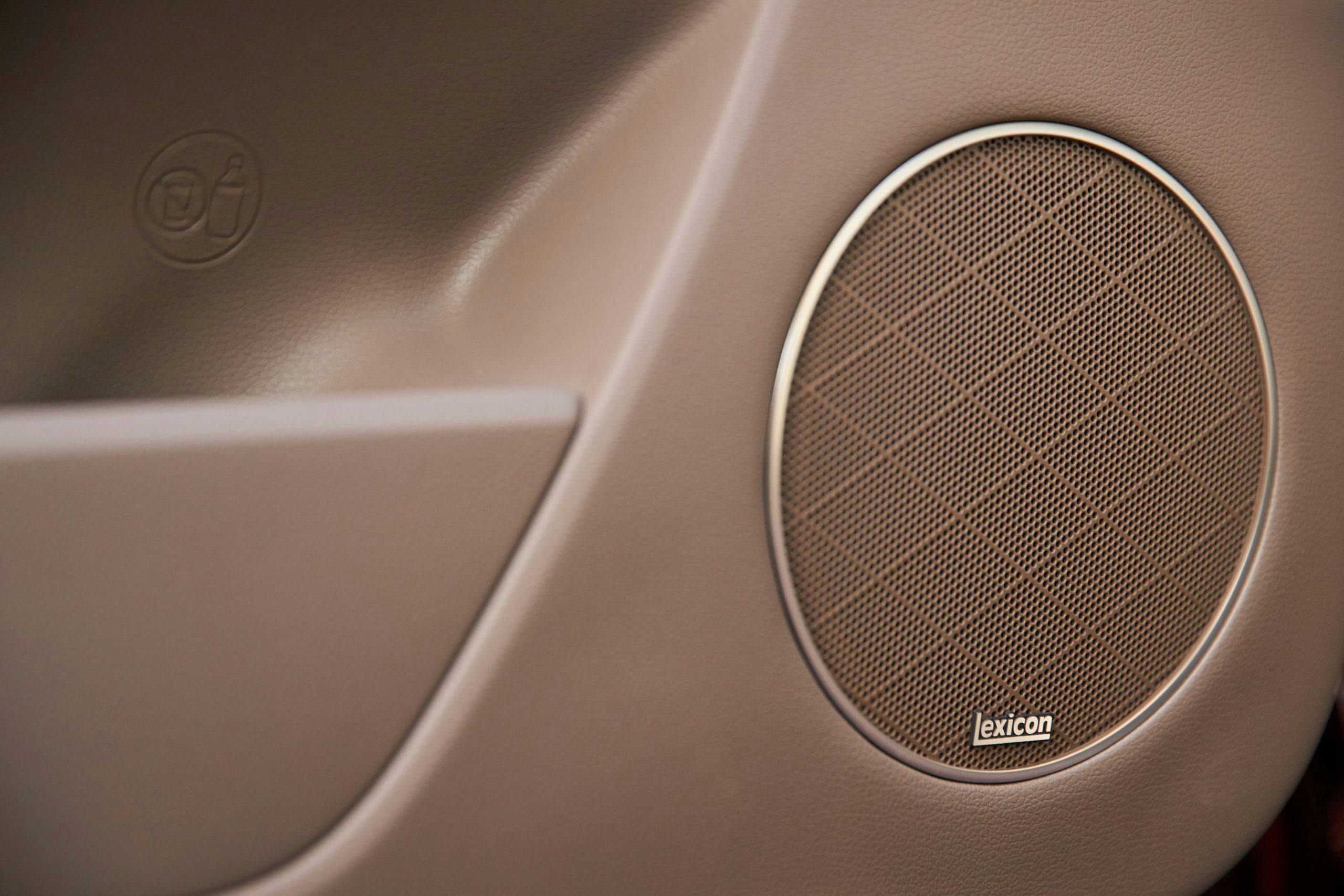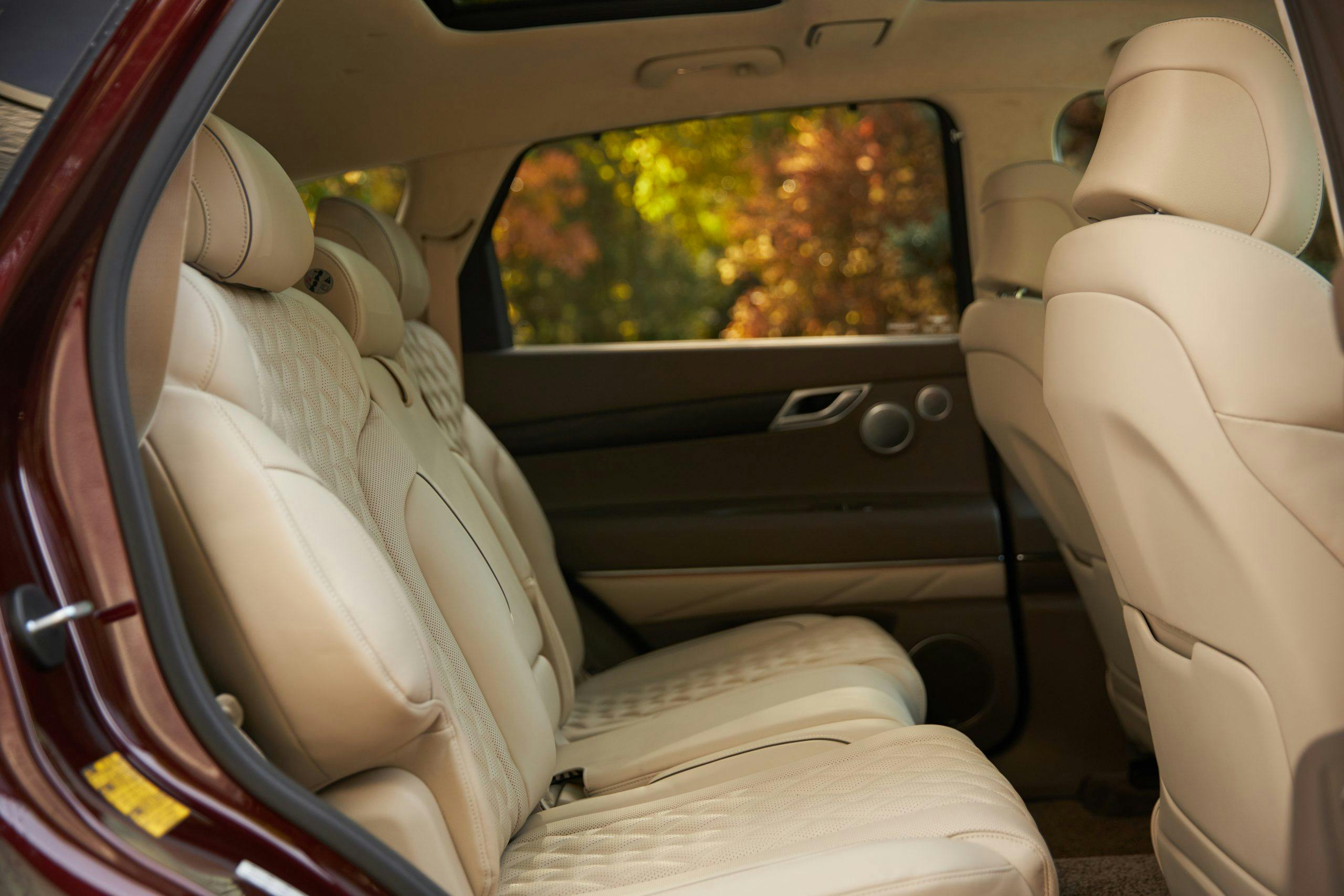Media | Articles
Review: 2021 Genesis GV80
Quietly, Genesis has been hard at work developing a new breed of luxury machine for the American market. That most people remain only vaguely aware of the Korean brand’s stalwart triumvirate of exquisite sedans is itself indicative of a critical hindrance—a gaping SUV-sized hole in showrooms. The long-awaited GV80, riding on a rear-wheel-drive platform shared with the upcoming G80 sedan, finally makes landfall at Genesis dealers in a few short weeks with the goal of remedying that predicament.
If the GV80 arrives late to American shores, there’s no denying it does so fashionably. Genesis has had five years for the design vision of Bentley alumnus Luc Donckerwolke to come into focus, and the result is an SUV that looks like none other on the road. Our test drive near the well-to-do Birmingham enclave of metro Detroit had us passing private schools and sharing red lights with all manner of posh competitors: hometown favorites like Lincoln, Cadillac, and GMC mixed with Land Rover, Volvo, and the usual German suspects. Drivers of these pampering high-riders never failed to ogle the GV80 with genuine curiosity.
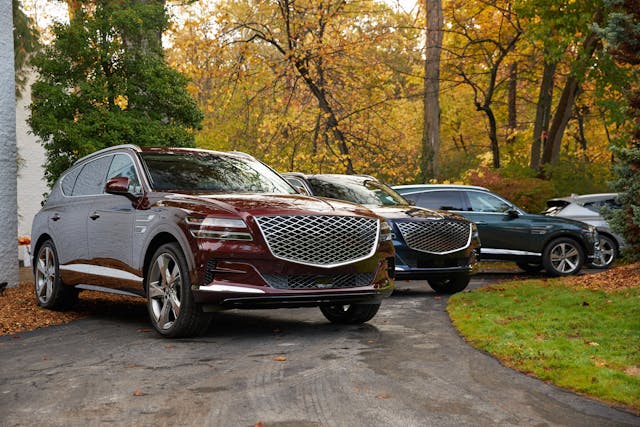
Beyond the confident stance and swept-back profile, this large-and-in-charge suburban barge is decorated with several prominent styling cues that customers will come to associate with Genesis. The slim two-line motif for the headlights, side markers, and taillights is simple and tasteful. Less so is the cartoonishly large shield grille and its mesh-like G-Matrix pattern, which Genesis says is “inspired by beautiful orchids seen when diamonds are illuminated by light.”
The upscale argyle theme carries over into the interior, albeit in a much more subtle manner on the central rotary controller, speakers, and seating surfaces. In fact, everything about the GV80’s cabin is subdued and reserved compared to the extroverted interior. The ovoid steering wheel, with its relatively limited buttons, is a sharp contrast to the German preference for showcasing hyper-functionality and tech mastery. Every surface feels high-quality, with particular attention lavished on common touchpoints—knurled knobs for the drive-mode controller as well as the wiper and signal stalks, open-pore wood for the hinged cupholder cover, and beautiful stitched leather on the center console.
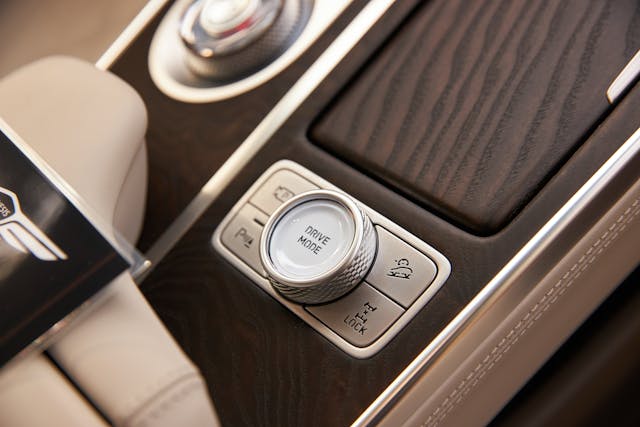
Equipment in the two GV80s we tested was nearly identical. Both the 2.5T RWD Prestige ($58,475 including destination) and 3.5T AWD Advanced Plus ($66,475) boast helpful features such as a 360-degree camera, blind-spot monitoring, and Remote Smart Parking Assistant. Interior finery included heated and cooled leather seats for the first and second row, three-zone climate control, and a massaging Ergo Motion Seat for the driver. The latter can be activated with a touch of the button on the outer side of the seat base. It operates silently, without a wisp of airy hiss.
Marketplace
Buy and sell classics with confidence
Only the 3.5T AWD Advance Plus offers a third row, which Genesis projects 10 percent of customers will want. Second and third-row seats fold flat and can be dropped into position from the infotainment menu or using power switches in the trunk. While the second row is generously spacious even for larger passengers, the third row is effectively a pair of jump seats all too familiar for younger siblings.
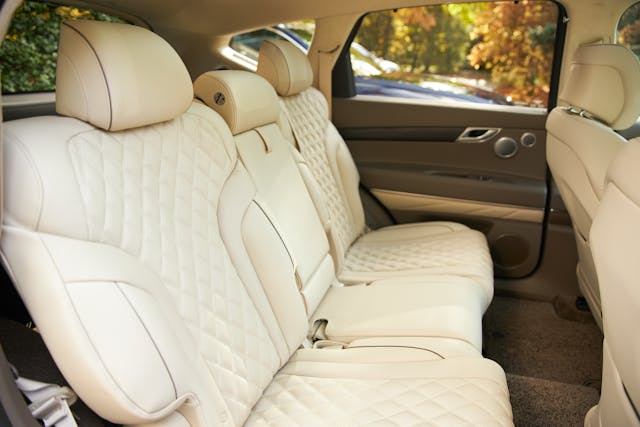
The GV80’s standard engine is a 2.5-liter turbocharged four-cylinder engine serving up 300 hp and 311 lb-ft of torque. This is a new powerplant that will do base duty in the G80 as well as the refreshed Kia Stinger. Opt for the 3.5-liter twin-turbo V-6 for 375 hp and 391 lb-ft of torque. Both engines feature multi-port as well as direct injection, and all GV80s assign shifting to an eight-speed automatic transmission. Rear-wheel drive is available only with the turbo-four, whereas all-wheel drive is optional with the base engine and standard on the V-6.
Punchy as it is, the four-cylinder is noticeably less refined than the six. We heard a strangely resonant whumpwhumpwhumpwhump sound that persisted when coming off throttle, a phenomenon absent in the V-6. Transmission programming for the base engine holds first gear for a bit too long from a stop, which on the one hand provides uninterrupted thrust but on the other engenders an unpleasant sensation that the powerplant is overworked. In a car whose overwhelming attitude is one of assured effortlessness, the V-6’s smooth delivery is a much better fit. Those frequenting the seafood counter don’t load up on cod when there’s bluefin sitting on ice.
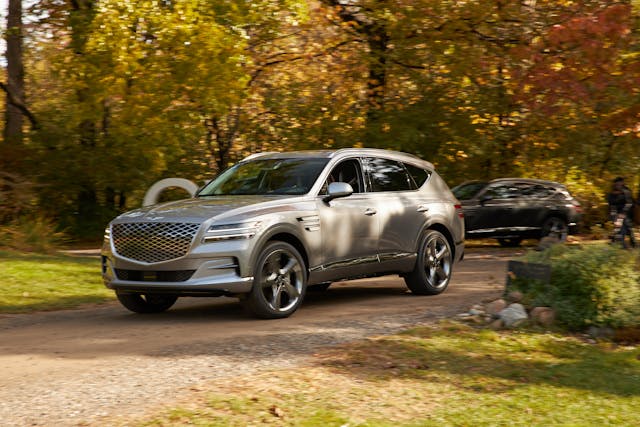
The 2.5T RWD comes standard with multilink suspension at all four corners, with a self-leveling function for the rear. The Prestige trim of the 2.5T AWD adds an electronically controlled suspension (standard on all versions of the V-6), which responds to input from various sensors as well as information about the road ahead as seen from a front-mounted camera. With either setup, the GV80 handles well for a vehicle this size, exhibiting impressive body control when hustled through highway on-ramps or tight bends. Brakes are similarly predictable, and the steering feels natural both in the parking lot and on the move. The GV80, refreshingly, makes little pretense in the name of sportiness. Perched from the high seating position that towers over compact crossover drivers, driving this car enriches one’s sense that a luxury vehicle should be a restorative oasis. Somewhat disappointing, though, is that the GV80 doesn’t glide over potholes and highway expansion joints with the G90 sedan’s same aloof grace.
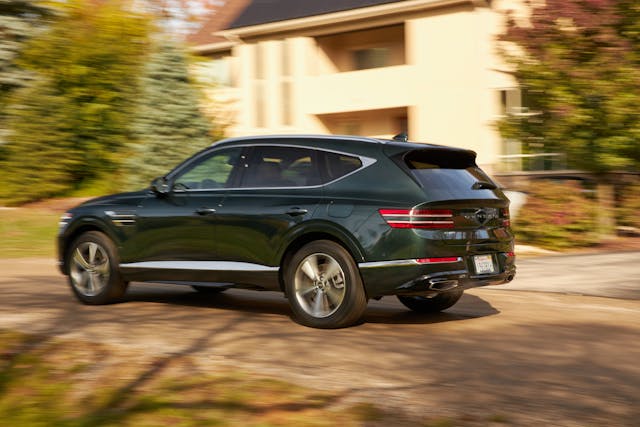
GV80s in 3.5T Prestige guise add 22-inch wheels and an electronic limited-slip differential, neither of which we had the opportunity to sample. These top-spec models include add a number of advanced technologies to the mix. An all-digital instrument cluster can display augmented-reality navigation directions overlaid onto a video feed of the road ahead, and Road Active Noise Cancellation compensates for wind and road noise with opposing phases of sound waves.
Even without these top-shelf features, the GV80 comes generously equipped with up-to-date tech. The 14.5-inch display mounted on the dashboard cohesively integrates into the interior design and features clear, high-resolution graphics. It is a touchscreen, but the screen is so wide that functions to the far right side of the screen require stretching over the center tunnel to reach. The rotary controller works better: The central ring spins to change between menu icons, and each of the four cardinal directions of the dial are also buttons, like the iPod before it went full-touch. The touch-sensitive pad in the center of the dial can process “handwritten” letters to search for navigation destinations, rather than fuss with a keyboard while driving.
Lexicon’s premium 21-speaker, 1050-watt audio system fills the GV80’s cabin with high-quality sound. Although there are 18 speakers placed around the cabin, to the driver the music seems to emanate from the windshield. Our iPhone’s shuffle landing on Quiet Is the New Loud by the Kings of Convenience seemed an apropos album, with the plaintive guitar picking and eerie harmonies of two Norwegians fellows drifting through the air.
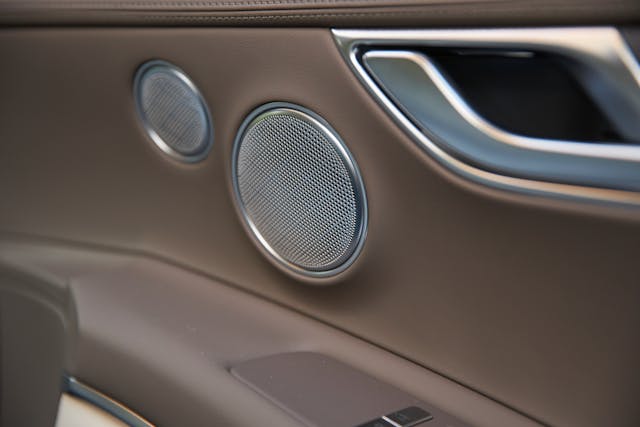
The GV80’s array of active driver assistance technologies is surely meant to further erode stress, but in practice it does the opposite. With adaptive cruise control and Lane Following Assist enabled, the vehicle gently sways within the lane while the steering wheel actively fights driver input. Leave it alone, however, and within several seconds the GV80 will warn you to reapply your hands. Applying just the right amount of pressure to the steering wheel ultimately demands more attention and energy than just doing it the old-fashioned way, which, in the GV80, is rather relaxing on its own. Such obvious human effort went into engineering a serene driving experience that Genesis’ cold and calculating tech strikes an off note.
Such shortcomings are few and far between. Especially for a young brand, this is a remarkable effort that is sure to reward customers daring to be different. The GV80 promises to satisfy those seeking a new-world interpretation of old-world luxury, and the time-honored appeal of compelling value without sacrificing quality remains a Genesis hallmark. There are no pesky add-ons or pricey packages to wrangle with once you’ve selected your desired trim, which means no surprises at the dealership and a price that often undercuts the competition by many thousands of dollars.

Since Genesis broke off from Hyundai in 2015, it has sorely needed an SUV to showcase its ambitions as a full-fledged luxury outfit. That time was obviously well spent. Even a short drive reveals that the GV80 was developed with the benefit of careful patience and a clear understanding of how important it is to nail a first impression. It might not be the life of the party, but the most important Genesis to date suggests this ambitious brand is reading the ballroom with a shrewdness beyond its years.
2021 Genesis GV80: $49,925 (base); $58,475/$66,475 (as tested 2.5T RWD/3.5T Prestige)
Highs: A recognizable design identity inside and out, refined V-6 engine, a real-deal luxury machine with a palatable price.
Lows: Ride could be more polished, driver assistance systems need fine-tuning, base engine is a linoleum tile in a parquet floor.
Summary: Combines the surefootedness, balance, and hushed refinement of Genesis sedans with the high-riding pomp of a velvet palanquin. The GV80 is a winner that’s better late than never.
